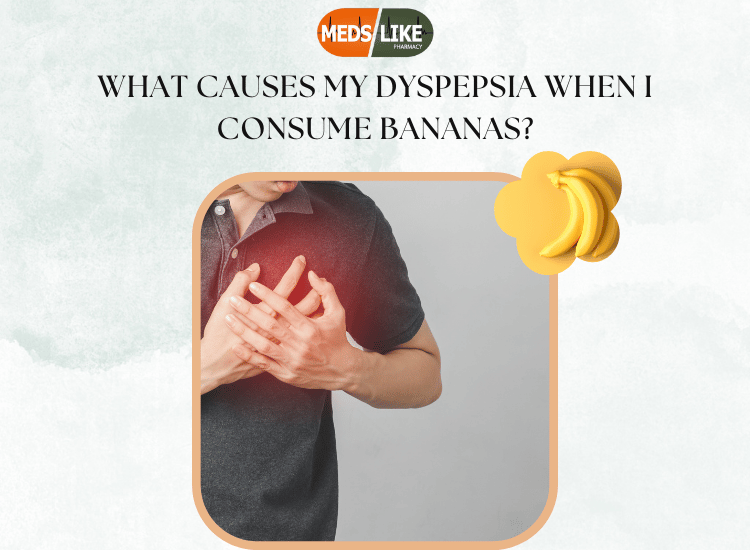What are the most prevalent causes of heartburn, and what is heartburn?
Heartburn is characterized by a burning sensation in the chest and esophagus, located behind the breastbone. The discomfort that travels through the esophagus in close proximity to the heart is a result of acid reflux. The esophagus is the site of indigestion, not the heart. It can be described as a sensation of warmth, heat, or scorching in the center of the chest. A few symptoms that may be observed during heartburn include a burning sensation in the chest, an intense ache while reclining flat, a tart taste in the mouth, a sensitive throat, and difficulty swallowing. For some individuals, heartburn is an irregular condition, while for others, it is a chronic symptom that occurs frequently.
Heartburn may be precipitated by certain underlying causes, which results in discomfort and pain.
There are several potential causes of dyspepsia, including:
- Inhaling smoke
- Abdominal pressure
- Pregnancy
- Consuming a substantial meal
- Digestion and gas
- Lying down immediately following a meal
- Specific food items
- Specific medications
The correlation between heartburn and bananas
Currently, this is a topic of debate among the various factions. We should comprehend the correlation between bananas and indigestion.
Alkaline foods, such as bananas, are frequently incorporated into the diets of individuals. It is a fruit that is high in fiber, which facilitates the passage of food through the digestive system and reduces the likelihood of gastroesophageal reflux and indigestion. When confronted with symptoms of reflux and food poisoning, bananas are typically the preferable choice.
Nevertheless, it is imperative to evaluate the ripeness of the bananas prior to consumption. Some individuals experience heartburn after consuming bananas, particularly if they are not sufficiently ripe. This is due to the fact that a ripe banana can combat gastric acid and layer the stomach lining, thereby preventing heartburn. Green bananas contain an excessive amount of strong starch, which increases as the banana ripens. This can result in intestinal discomfort, bloating, dyspepsia, or further digestive difficulties. An abundance of any item is also a cause for concern. While bananas are beneficial for digestion, exceeding the recommended intake can result in complications.
Sensitivity to bananas on a personal level
You may develop intolerance to specific foods. Currently, food intolerance and food allergy are two distinct conditions that may appear to be the same. Several allergic reactions can be induced by food allergies, which also involve the immune system. However, food intolerance is not immune-responsive and is associated with conditions such as diarrhea, fatigue, and irregular bowel movements.
The high levels of resistant starch in bananas, which undergo a transformation as they ripen, may induce indigestion.
Digestion issues, such as indigestion and acid reflux, may also result from consuming an excessive amount of bananas. Nevertheless, bananas may not be suitable for certain individuals due to their food intolerance.
Managing dyspepsia caused by bananas
Tips for decreasing the probability of experiencing indigestion after consuming bananas:
- Ensure that you are consuming a ripe banana, as it contains less starch than raw bananas.
- Limit your banana consumption to the minimum requirements.
- If you have an allergy to bananas, it is advisable to refrain from consuming them.
- If you are consuming a banana immediately prior to going to bed, allow yourself some time to relax before retiring.
Alternative methods of consuming bananas that do not induce dyspepsia include:
A few recommendations for consuming bananas without concern include consuming them only when they are fully mature. Additionally, it is guided to refrain from overdosing due to its weight and possible for gastrointestinal distress.
What is the reason for the heartburn I experience when I consume bananas?
According to the general consensus, bananas do not typically induce dyspepsia. Nevertheless, certain individuals may experience indigestion due to their susceptibility to acid reflux, and bananas contain an ingredient that can induce a warm, burning sensation in the chest.
Intolerance to fructose:
Acid reflux may result from fructose intolerance. It occurs when the small intestine is unable to assimilate fructose, causing the stomach to be overburdened. It induces gastroesophageal refluxes by increasing intestinal sensitivity.
Bananas that are not yet mature:
High-level resistant starch is present in bananas that are not ripening sufficiently, which may result in flatulence and bloating. The banana’s carbohydrate content fluctuates as it ripens.
Sorbitol:
It is implausible that a small amount of sorbitol will result in any anxiety. However, a small quantity of sorbitol can result in discomfort for individuals with gastrointestinal diseases and acid reflux.
Expert Opinions and Perspectives
Insights from healthcare authorities or dietitians concerning banana-induced dyspepsia:
Bananas do not induce indigestion in the majority of individuals, according to Dr. Jamie Koufman, a projecting practiced on acid reflux. “Bananas are not acidic, whereas the majority of fruits are.” They are beneficial for reflux.
One potential cause of heartburn, according to registered dietician Lauren O’Connor, is that bananas may induce bloating in certain individuals, which can result in reflux, particularly in those with irritable bowel syndrome.
Suggestions for individuals who frequently experience indigestion as a result of banana consumption:
If you frequently experience burning discomfort in your chest after consuming bananas, there are numerous preventative measures you can incorporate into your daily routine.
Opt for:
- Consuming bananas that are ripe
- Consuming bland foods
- Consuming an increased amount of water
- Avoiding fatty acids
- Avoiding foods that are weighty for the stomach
- Undergoing an examination by a physician for the same
Treatment for Acid Reflux
Heartburn can be prevent at home through the use of natural medications, over-the-counter medications, lifestyle adjustments, and heartburn remedies. Nevertheless, if the condition persists for more than 24 hours and causes searing pain in the chest, your physician may prescribe medications such as Rabeprazole and Ranitidine, which are available for purchase on Medslike. The following are some of the treatments available for the diagnosis:
• Antacids: They neutralize the gastric acid, which alleviates heartburn. Nevertheless, it is unable to return the esophagus that has been injure by stomach acid.
• H2 blockers: These prescriptions reduce stomach acid by inhibiting the chemical that generates histamine. Although it does not operate as rapidly as antacids, H2 blockers offer alleviation for an protracted period.
• Proton pump inhibitors are potent acid blockers that also facilitate tissue repair in the event of acid reflux. When experiencing relatively severe gastritis, your physician may prescribe these medications. Additionally, they facilitate the healing of esophageal ulcers.
• Alginates are carbohydrates that are sensibly existing in seaweed. By layering and floating on top of the acid, they create a physical barrier between the acid and the esophagus, thereby preventing acid reflux. Alginates are present in certain antacids to enhance their effectiveness.
The following are some additional prevention measures that you may wish to take:
- Avoid consuming heavier meals at night
- Avoid smoking
- Consume alcohol in moderation
- Consume a superior total of fruits and vegetables
- Consume low-fat beverages
- Avoid foods that cause heartburnMaintain a healthy weight
- Avoid lying down immediately after eating
- Make specific lifestyle changes
In conclusion,
Individuals experience chest and throat discomfort and agony as a result of heartburn. The duration of heartburn can range from a few minutes to hours. The searing pain is technically felt in the esophagus tract, which impedes the ability to swallow. It is a prevalent condition known as acid reflux or gastroesophageal reflux, and it does not involve the heart. Certain foods can be beneficial in alleviating dyspepsia, while others should be avoided during the onset of reflux. One point of contention that causes confusion among individuals is the reason why bananas cause heartburn, despite the fact that they are consider a healthy food to consume during episodes of heartburn. Consuming bananas can mitigate symptoms of acid reflux, bloating, and gas. Bananas may induce stomachaches in certain individuals due to their inadequate ripening, fructose intolerance, or sorbitol content. If you experience frequent dyspepsia, you may wish to consult with your physician regarding a variety of treatments.
FAQ’s
1. Which items are beneficial for people with heartburn?
Some food options that can help alleviate indigestion include fruits such as bananas and melons, low-fat dairy foods, whole grain, brown bread, oatmeal, green vegetables such as broccoli, green beans, and celery, root vegetables such as potato, sweet potato, carrot, and beetroot (excluding onion), and honey.
2. What beverages can be consume to alleviate heartburn?
Maintaining proper hydration alleviates the discomfort associated with acid reflux and indigestion. Coconut water, water, lukewarm milk, plant-based and low-fat milk, fruit and vegetable juices, milkshakes, herbal tea, and apple cider vinegar are among the beverage alternatives that may alleviate the discomfort. Alcohol, caffeine beverages, acidic juices, carbonated beverages, and sodas should be avoid during episodes of GERD.
3. What foods should be consume when experiencing heartburn?
Many of the foods previously mentioned, such as fruits and vegetables, high-fiber foods, whole cereals, lemon water, and low-fat milk, can alleviate the burning sensation in the esophageal tract. Avoid processed munchies, spicy food, heavy meals, and fast food.
4. What is the duration of heartburn?
Heartburn can continue for a few minutes to a few hours, but it can be instigate by a change of factors. Equally, it may persist for 24 hours or longer. After passing excrement and emptying your stomach, it should subside.



